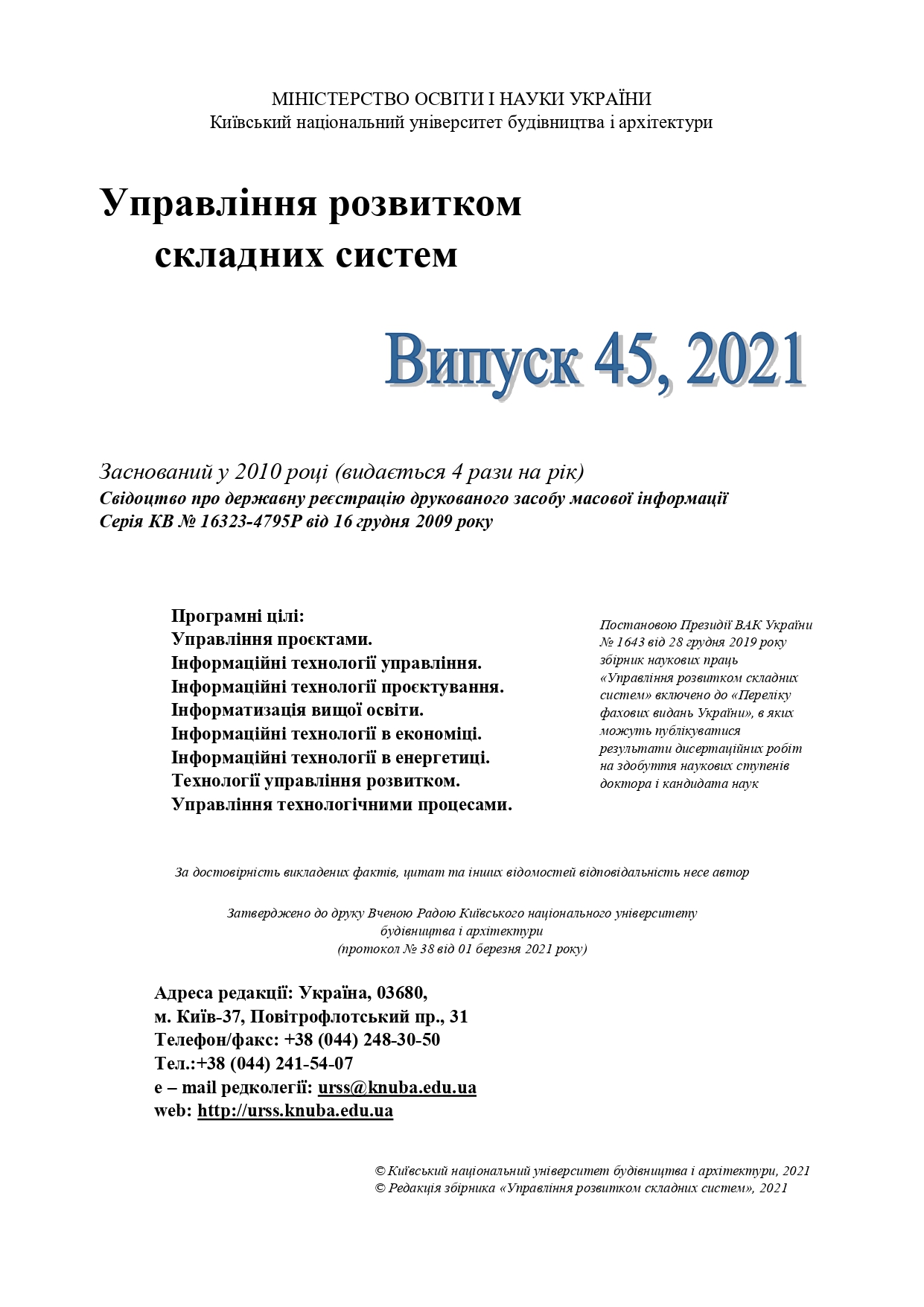EXPLORING THE POTENTIAL OF LEAN PHILOSOPHY TO SPREAD THE VALUE OF SUSTAINABILITY IN THE JAPANESE AUTOMOBILE INDUSTRY: THE CASE OF TOYOTA MOTOR CORPORATION
DOI:
https://doi.org/10.32347/2412-9933.2021.45.176-181Ключові слова:
constant development, Toyota Motor Corporation, source storage, company philosophyАнотація
The criticality of sustainability suggests the need to understand how commercial organization could implement sustainable development. This paper focuses on lean manufacturing and intends to explore the potential of lean philosophy to bring the value of sustainability into an organization. The ultimate purpose of the study lies in the comparison between the possibility of lean philosophy to lead to something remotely resembling a contribution to strong sustainability and what lean enterprise present in the sustainability report. According to the lean practices implemented in Toyota Motor Corporation and previous literature about lean philosophy, we explore how lean philosophy could assist spread the value of sustainability initiated by the top management and construct sustainable development in the corporate value chain. The result shows that the corporate philosophy could assist in achieving a consensus among all the stakeholders and mobilizing them moving towards sustainable development. The value of sustainability can also be beneficial from the process of implementing lean practices. However, the report implies that Toyota focuses more on how to utilize lean tools to achieve technological optimization in operation to address sustainability issues, rather than having a thorough understanding of the ecological limits of the planet. This paper offers some helpful reference to lean manufacturing and discuss the potential role of lean philosophy in the construction of sustainable development.
Посилання
Ferreira, Aldónio, Otley, David. (2009). The design and use of performance management systems: An extended framework for analysis. Management Accounting Research, 20, 4, 263–282.
Parkes, Aneta. (2015). Lean Management Genesis. Management, 19, 2.
Babson, Steve. (1995). Lean Work: Empowerment and Exploitation in the Global Auto Industry. Wayne State University Press, Detroit, 116.
Ball, A. & Milne, M. J. (2005). Sustainability and management control. Management control: theories, issues, and performance. Palgrave Macmillan, Houndmills, Basingstoke, Hampshire New York, 314–337.
Bicheno, J. (1999). The New Lean Toolbox, Pixie, London.
Brekke, A. (1997). Physics of the Upper Polar Atmosphere. John Wiley, 485.
Brintrup, Alexandra, Kito, Tomomi, Reed-Tsochas, Felix and New, Steve. (2011). The structure of the Toyota supply network: The emergence of resilience. CABDyN Working Paper.
Bebbington, J. (2001). Sustainable development: a review of the international development, business, and accounting literature. Accounting Forum, 25, 2, 128–157.
Modarress, B., Ansari, A. & Lockwood, D. L. (2005). Kaizen costing for lean manufacturing: a case study. International Journal of Production Research, 43, 9.
Bebbington, J. (2001). Sustainable Development: A Review of the International Development, Business, and Accounting Literature. University of Aberdeen, Finance & Mgmt Working Paper, 1–17.
Barbier, E. B. (1987). The concept of sustainable economic development. Environment conservation, 14, 101–110.
Baxter, T., Bebbington, J. & Cutteridge, D. (2004). Sustainability assessment model: modeling economic, resource, environmental, and social flows of a project. Triple Bottom Line: Does It All Add Up, 113-120.
Ball, A. & Milne, M.J. (2005). Sustainability and Management Control, chapter 18 in Management Control: Theory, Issues and Practices. Macmillan.
Bhasin, S. & Burcher, P. G. (2006). Lean viewed as a philosophy. Journal of Manufacturing Technology Management, 17(1), 56–72. https://doi.org/10.1108/17410380610639506.
Hofer, Christian, Eroglub, Cuneyt, Hofer, Adriana Rossiter. (2012). The effect of lean production on financial performance: The mediating role of inventory leanness. International Journal of Production Economics, 138, 2, 242–253.
Dryzek, J.S. (1997). The Politics of the Earth: Environmental Discourses. Oxford University Press, Oxford, UK.
Daly, H. E. and J. B. Cobb, Jr. (1989). For The Common Good: Redirecting the Economy Toward Community, the Environment, and a Sustainable Future. Boston: Beacon.
De Groene & Hermans. (1998). Economic and other implications of integrated chain management: a case study. Journal of Cleaner Production, 6, 199–211.
Meade, David J., Kumar, Sameer & Houshyar, Abdolazim. (2006). Financial analysis of a theoretical lean manufacturing implementation using hybrid simulation modeling. Journal of Manufacturing Systems, 25, 2, 137–152.
Ang, F. & Van Passel, S. (2012). Beyond the environmentalist's paradox and the debate on weak versus strong sustainability. BioScience, 62 (3), 251–259.
Gray, B. (1990). The enactment of management control systems: a critique of Simons. Accounting, Organizations and Society, 15, 1, 145–148.
M ́alovicsa, Gy rgy. (2006). No ́emi Nagyp ́al Csig ́en ́eb.
The role of corporate social responsibility in strong sustainability. (2008). The Journal of Socio-Economics, 37, 907–918.
Garmendia, L., Soto, M., Cajaraville, M. P., Marigómez, I. (2010) Seasonality in cell and tissue-level biomarkers in Mytilus galloprovincialis: relevance for long-term pollution monitoring. Aquat, Biol., 203–219. DOI: 10.3354/ab00245.
Hayes, R. H. (1981). Why Japanese factories work. Harvard Business Review, 57–66.
Daly, Herman E. (1992). Allocation, distribution, and scale: towards economics that is efficient, just, and sustainable. Ecological Economics.
Itazaki, Hideshi. (1999). The Prius That Shook the World: How Toyota Developed the World's First Mass-Production Hybrid Vehicle, translated by A. Yamada and M. Ishikawa. Tokyo: The Kikkan Kogyo Shimbun, Ltd.
Hiromoto, T. (2009). The Management System for Autonomous Organizations: Wisdom of Japanese Management. Moriyama-Shoten, Tokyo (in Japanese).
Hadid, W., Mansouri, S.A. & Gallear, D. (2016). Is lean service promising? A socio-technical perspective. International Journal of Operations and Production Management, 36, 6, 618–642.
##submission.downloads##
Опубліковано
Як цитувати
Номер
Розділ
Ліцензія
Авторське право (c) 2021 Zongyi Wang

Ця робота ліцензується відповідно до Creative Commons Attribution-NonCommercial-NoDerivatives 4.0 International License.

